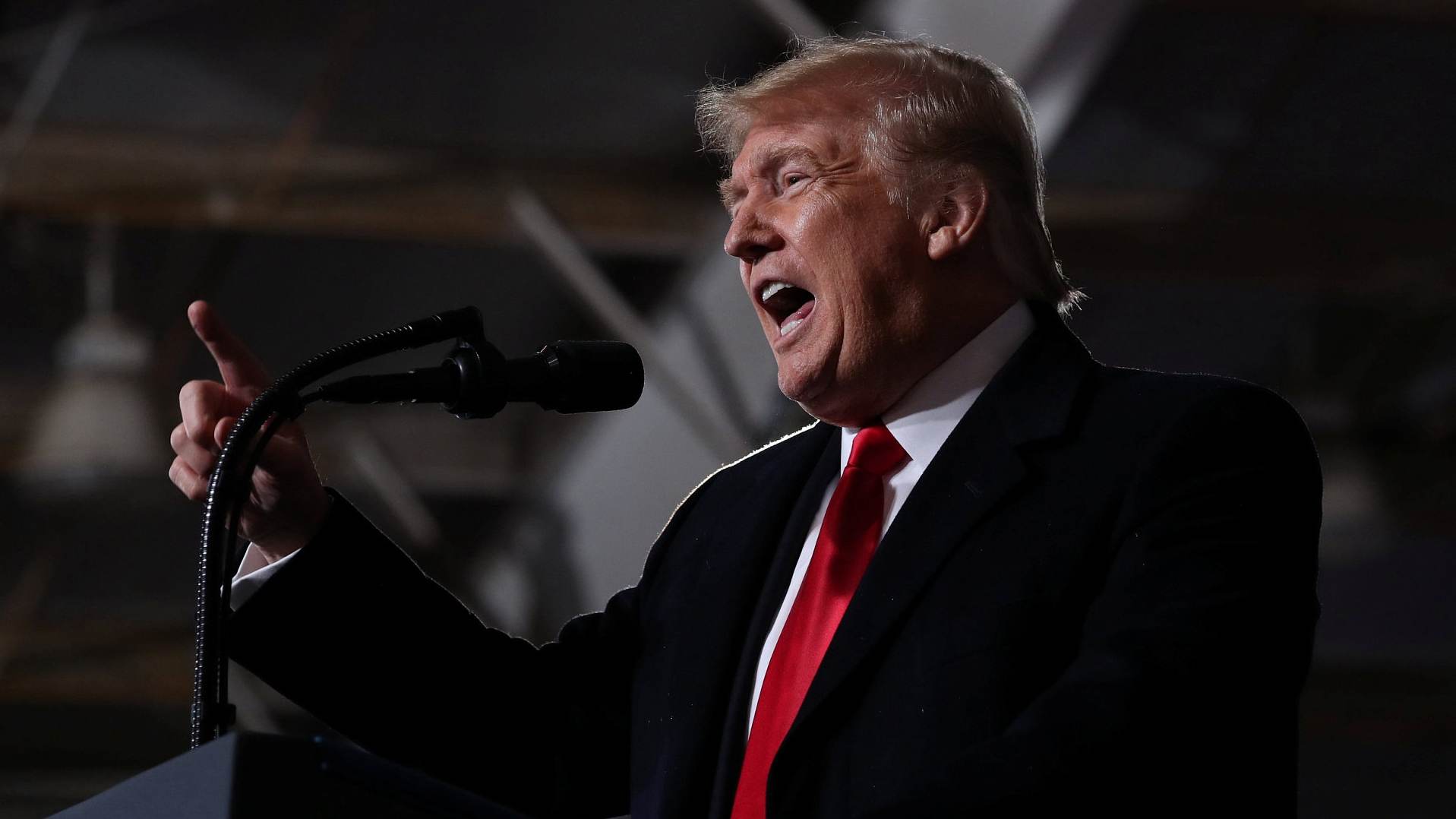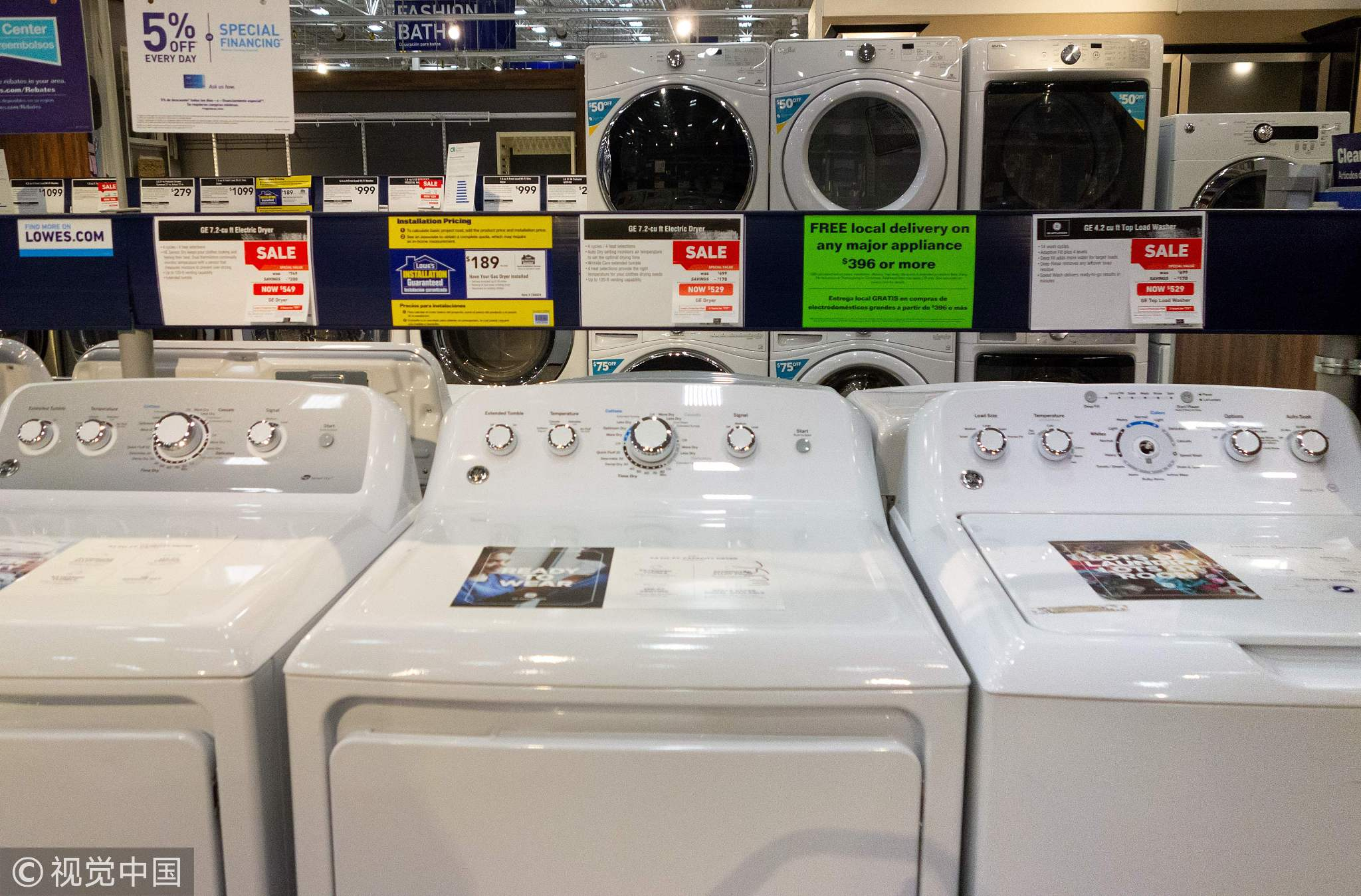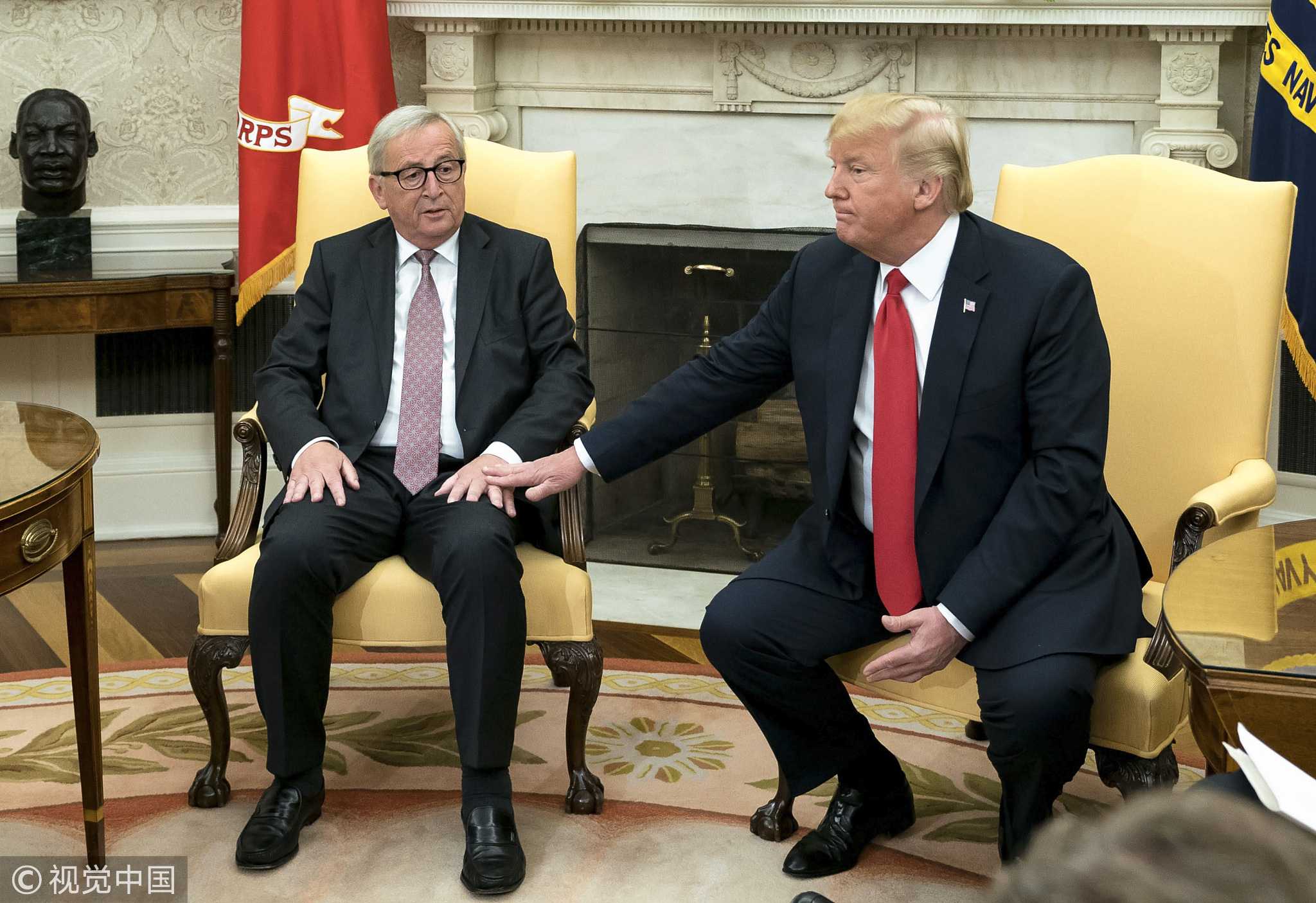
Opinions
13:18, 13-Oct-2018
Opinion: 'The art of the deal' can't be a light for the world
Updated
12:28, 16-Oct-2018
CGTN

Editor's Note: The following is an edited translation of a commentary from the Chinese-language "Commentaries on International Affairs" and first published on CRI. The article reflects the author's views, and not necessarily those of CGTN.
The latest World Economic Outlook report, released in April by the International Monetary Fund (IMF), lowered the global economic growth forecast for 2018 and 2019 from 3.9 percent down to 3.7 percent.
The IMF said that in a highly uncertain political environment, trade risks have become a major challenge for the global economy. This is why IMF Managing Director Christine Lagarde called on world leaders "to join hands to fix the current trade system, not destroy it."
Last week when US Vice President Mike Pence delivered a speech in Washington attacking China, he mentioned the tariffs on 250 billion US dollars of goods from China being implemented by the US. He warned that the US "will levy even more tariffs, with the possibility of substantially more than doubling that number, unless a fair and reciprocal deal is made," a threat that has also been made by President Donald Trump.
Despite the calls by the IMF for a resolution to political uncertainty and rising trade tensions, Pence defended the Trump administration's trade war, saying that "the United States of America has been defending our interests with renewed American strength."

Washing machines, dryers, and other appliances are for sale at a Lowe's home improvement store in Washington. The US trade deficit ballooned in August to its highest level in six months as exports of tariff-targeted goods fell. /VCG Photo
Washing machines, dryers, and other appliances are for sale at a Lowe's home improvement store in Washington. The US trade deficit ballooned in August to its highest level in six months as exports of tariff-targeted goods fell. /VCG Photo
What Vice President Pence calls a defense, and what President Trump has called "the art of the deal," have been seen by many for what they really are: an attack by the US against its allies, and against the very foundations of the international multilateral system.
In June, the White House trade representative Peter Navarro said that "There's a special place in hell for anyone who engages in bad faith diplomacy with President Donald J. Trump." He was referring to Canada's Prime Minister Justin Trudeau.
Trudeau said at a press conference after G7 meeting: "Canadians did not take it lightly that the United States has moved forward with significant tariffs on our steel and aluminum industry." President Trump responded by retracting his endorsement of the G7 joint statement.
In July, Trump and European Commission President Jean-Claude Juncker surprisingly released a joint statement, which was held up as something of a peace deal for their trade frictions. The two sides reached consensus on working toward "zero" tariffs, barriers and subsidies.
However, Trump's offer of peace really was too good to be true. At the end of August, President Trump announced a 25 percent tariff on cars imported from the European Union.

Jean-Claude Juncker (left), President of the European Commission, speaks as US President Donald Trump listens during a meeting in the White House in Washington, US, July 25, 2018. /VCG Photo
Jean-Claude Juncker (left), President of the European Commission, speaks as US President Donald Trump listens during a meeting in the White House in Washington, US, July 25, 2018. /VCG Photo
As for Japan, a longtime friend of the US, it was slapped with Trump's steel and aluminum tariffs. And Trump further threatened to increase the tariff on Japanese cars from 2.5 to 25 percent in order to push Japan to the table to sign several bilateral trade agreements.
As for China, the White House has claimed many times that China has been unwilling to move beyond their current trade disputes. But in reality, China has clarified that it is willing to work with the US to find a solution.
In the white paper released in September, China expressed its willingness to restart negotiations on bilateral investments and signaled that it is open to working towards a bilateral free trade agreement based on the spirit of equality and mutual benefits.
There is a Chinese saying that "People without credibility won't be able to prosper; A country without credibility will surely decline." Trump's protectionist and unilateralist acts are jeopardizing America's credibility as a responsible world leader.
The world has seen time and again that Trump, since assuming office, is gradually withdrawing the US from the international community. To the dismay of US allies, Trump has pulled his country out of the Trans-Pacific Partnership Agreement, the Paris climate accord, the Iran nuclear deal as well as international organizations including UNESCO and the United Nations Human Rights Council. Trump even threatened to withdraw from the World Trade Organization and the United Nations.
Is this really the "American leadership [that] lights the way" that Pence was telling the world about? As the US turns on its allies and foes alike, proclaiming its adherence to the philosophy of "America First," how can it expect to be a country that helps to light the way for the world?
(If you want to contribute and have specific expertise, please contact us at opinions@cgtn.com.)

SITEMAP
Copyright © 2018 CGTN. Beijing ICP prepared NO.16065310-3
Copyright © 2018 CGTN. Beijing ICP prepared NO.16065310-3